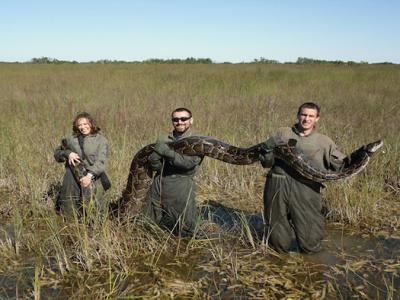Male Antelope Scare Females Into Staying for Sex
Two topi antelope face each other (file photo).
Nick Wadhams in Nairobi
for National Geographic News
Published May 21, 2010
During mating season, male topi antelope trick females with false alarms of nearby danger to boost chances for sex, a new study says.
If a female starts wandering out of a male's territory, the male will begin snorting and staring, ears pricked, at nonexistent predators.
"The female will be walking away, and the male runs in front, looks not at the female but where she's going, makes this snort, and she typically stops," said lead researcher Jakob Bro-Jørgensen of the University of Liverpool.
The researcher, who observed the topi's tricky behavior in Kenya's Masai Mara National Reserve, noted that the males issue fake warnings only when the wandering females are in heat.
Bro-Jørgensen thinks male topi might have evolved the behavior to better their odds during the brief but intense mating season.
One day a year females are in heat, and during that period they will have sex with an average of four different mates, 11 times each.
Tricking a female into sticking around for a few extra minutes gives the buck more chances for sex and denies other males the opportunity, Bro-Jørgensen said.
(Related: "Chimps Trade Meat for Sex—And It Works.")
Antelopes Rely on Deception
Animals use trickery of all sorts in the wild—for instance, some birds fake injuries to lure attackers away from their young. But the deception is usually aimed at rivals or threats, not potential mates. (Related: "Cuttlefish Change Color, Shape-Shift to Elude Predators.")
Mike Rainy, a behavioral ecologist and Masai Mara tour guide, has studied topi for decades. He applauded Bro-Jørgensen's research for helping to show exactly when and how the antelope species' trickery occurs.
Rainy added that he has seen similar "false alarm" behavior among other species of antelope, including impalas and Thomson's gazelle, although it was unclear why these species were acting that way.
Antelopes in general are known to rely on several forms of deception, he added.
In some cases, antelope won't give warning signals if they see predators stalking their rivals, Rainy said. Male topi will also chase topi calves in a fake show of anger, to get their mothers and other females to stay close by.
"You'll find the male actually chases the calf to the point of it giving a distressed alarm bleat," Rainy said. "He's feigning aggression to the calf. He's not interested in hurting it, he just wants the female and her sisters to come back."
The topi trickery findings were published online May 17 by the journal The American Naturalist.












